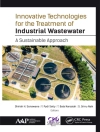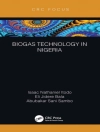As this book is the first book worldwide in the ‘sustainable’ management of luxury area, it highlights key aspects in the sustainable management of luxury based on presentations using different approaches, whether reflexive, empirical, hands-on or applied theory and cases.
Inhoudsopgave
Redefining the Essence of Sustainable Luxury Management: The SLOW Value Creation Model.- The Strategic Role of Authenticity in the Luxury Business.- Creating a Culture of Shared Value Through Luxury Branding.- Sustainable performance management in high-end luxury goods firms: the use of the ‘Reputation-Clock’ Model.- Sustainable luxury and fashion: from global standardisation to critical customisation.- Climate Change: Implications and Strategies for the Luxury Sector.- Identifying The Luxury Sustainability Paradox: Three Steps Toward A Solution.- Strike a Pose: Luxury for Sustainability.- Sustainable Luxury in Hotels and Resorts: Is it Possible?.- Diamonds, development, and dollars: A case study on a newly founded gemological lab in Botswana aiming at sustainable community empowerment.- More than skin deep: a service design approach to making the luxury personal care industry more sustainable.- Promoting Sustainable Management: World Wildlife Fund’s Hybrid Strategy to Change the Luxury Industry.- Luxury Products and Services and the Sustainable Value Chain: Six Management Lessons from Gucci.- Luxury Fashion Brand Sustainability and Flagship Store Design. The Case of ‘Smart Sustainable Stores’.- Vogue or Vague: Sustainability Performance Appraisal in Luxury Fashion Supply Chains.- Application of Digital Enterprise Technology (DET) for Green Made-To-Measure in Korean Luxury Fashion Industry.- Sustainable Luxury Fashion: The Entrepreneurs’ Vision.- The family business phenomenon as a means for a sustainable business in the clothing luxury business.- Craft’s Path to the Luxury Market: Sustaining Cultures and Communities Along the Way.- (Not) Made in Italy: Can Sustainability and Luxury Co-exist? .- Luxury, Sustainability, and Corporate Social Responsibility: Insights from Fashion Luxury Case Studies and Consumers’ Perceptions.
Over de auteur
Miguel Angel Gardetti (Ph.D.) has been the head of the Center for Study of Corporate Sustainability (IESC) since its foundation in 2002. He also holds the same position at the Center for Study of Sustainable Luxury. He is head professor in MBA and master’s programs both in Argentina and abroad. He has provided training within frameworks of executive education and in house programmes to CEOs and Corporate Managers both from domestic and multinational companies in Argentina and Latin America.
As to Luxury and Sustainability, he was the founder and director of the IE Award for Sustainability in the Premium & Luxury Sectors (currently it is developing the sixth edition of this prize). Also –in this field and as co-editor- he developed several publications such as, for example, a special issue on ‘Sustainable Luxury’ within the framework of the Journal of Corporate Citizenship; the book titled “Sustainable Luxury: Managing Social and Environmental Performance In Iconic Brands” and the two volumes of the “Handbook of Sustainable Luxury Textiles and Fashion” (Springer). For his contributions in this field, he was granted the “Sustainable Leadership Award, ” an award granted by the Indian World CSR Congress, last February in Bombay (India.)
He was a member of the United Nations Global Compact Promoting Group in Argentina and a member of its governance body –the Board of the Argentine Chapter of The Global Compact- for two consecutive terms. He was co-founder of the Global Compact Chair in Argentina, and he was also part of the task force that developed the “Management Responsible Education Principles” of the United Nations Global Compact.
He has also coordinated tasks for the Inter-American Development Bank, the International Finance Corporation (private sector arm of the World Bank), the World Business Council for Sustainable Development, the United Nations (New York), and the World Resources Institute (USA).












